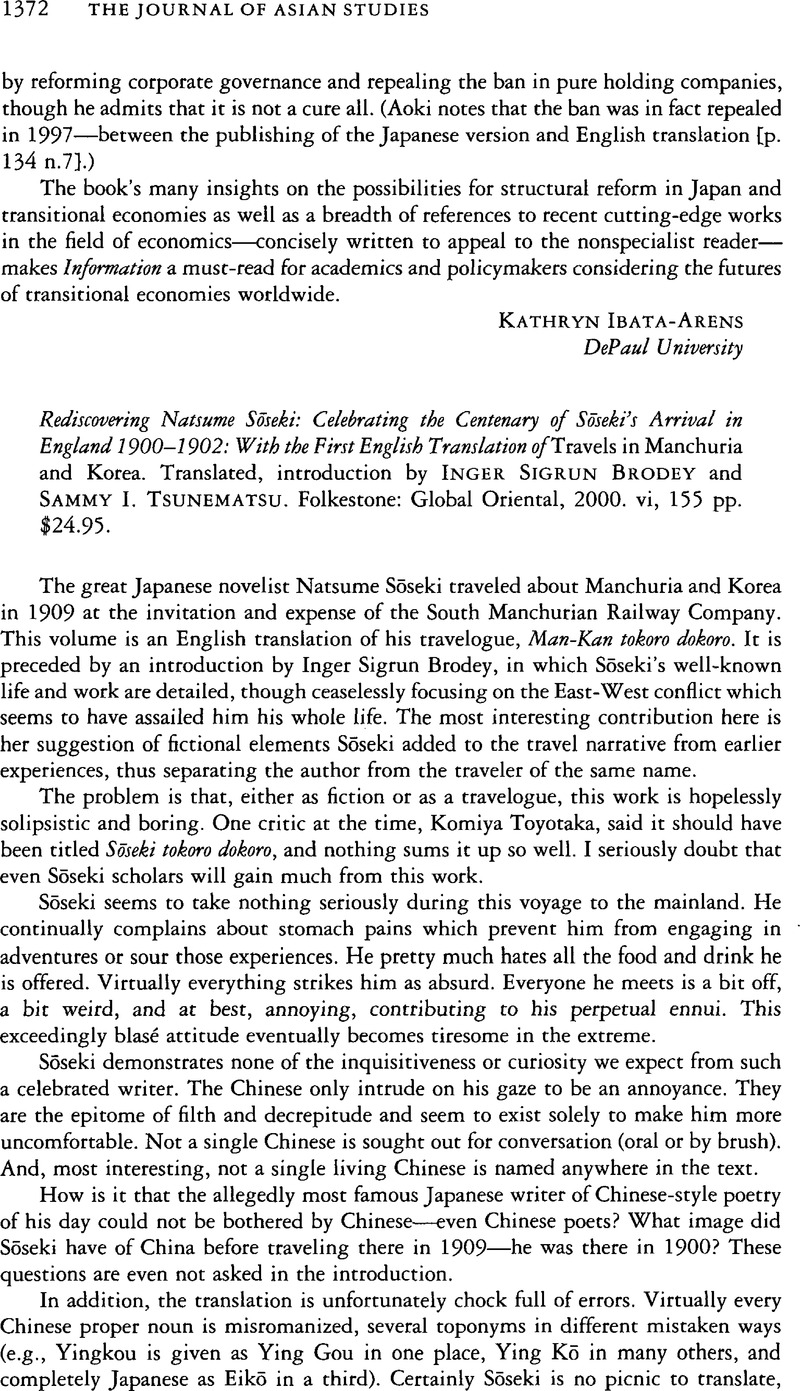Rediscovering Natsume Sōseki: Celebrating the Centenary of Sōseki's Arrival in England 1900–1902: With the First English Translation of. Travels in Manchuria and Korea. Translated, introduction By Inger Slgrun Brodey and Sammy I. Tsunematsu. Folkestone: Global Oriental, 2000. vi, 155 pp. $24.95.
Published online by Cambridge University Press: 26 March 2010
Top review from the United States
Nathan Adrian Hagen
3.0 out of 5 stars Disappointing
Reviewed in the United States on March 24, 2002
The book consists of a long introduction written by Inger Brodey, discussing Soseki's works and life, and devoting some attention to the work translated in the body of the book: Soseki's "Travels in Manchuria and Korea". This book has never before been translated into English, unfortunately for good reason. Brodey mentions in the introduction that Japanese critics have generally not been very friendly to the work, deriding it as being a work mainly about Soseki's daily petty concerns and personal health as he travels through Manchuria. (The narration ends before Soseki reached Korea. No-one would be surprised, I think, if Soseki had been disappointed with his own work and decided to end it early since it was achieving nothing of real value.) These were my sentiments exactly; its narrative is tedious and lacking in any development.
I myself am a great admirer of Soseki's works and literary achievements, but this book will add nothing to his reputation and will be ignored.
5 people found this helpful

No comments:
Post a Comment
Note: Only a member of this blog may post a comment.